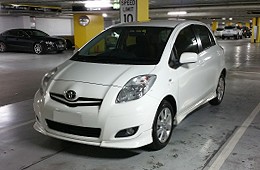Visit the old website: |
Suzuki Hayabusa Stuff:  Tech Specifications Tech Specifications Color Schemes |
Featured story lines: LAMS and Commuter motorcycles Motorcycle Picture Galleries Motorcycle Specs and Pricing |
Understanding electric cars and motorcycles and their efficiency

The world is not at cross roads but a transitional period in terms of automotive engines and fuel. Essentially anything that uses the internal combustion engine is going to disappear and replaced with electric powered motors. Usable electric motors and batteries have been around just a long if not longer then the internal combustion engine but for some reason and at a certain point in history overtook every other alternative. The research for that event or events will probably require a Phd student in history. Nonetheless it is important to also note that the internal combustion engine has only been around for about 250 years definitely peaking in 2020 and will slowly be phased out in all forms as soon as possible.
The transition to motors, batteries and electric power has not been a smooth one. Lots of conservative politics, commercial interests and stupid people of course have made this much slower than expected. With the world now focused on developing new technology around the new power system we are seeing an acceleration in the development of new technologies that arguably is faster than the internal combustion engine and oil! Expect the new developments to make any small minded statements critical of the ecosystem as just that small minded luddites! I expect the development time frame to be like mobile phones but quicker. Unless something truly earth shattering occurs.
In order to not look like a complete luddite in the next ten years I think we need to start somewhere in understanding how to measure efficiency of the power consumption as a average rather than the detail. For example – you don’t need to now what 1Kwh means mathematically and scientifically. You just need to know that a car For Example uses 1KwH to travel 100 kilometres for a particular type of electric model.
I have read many sources and found that mis-understanding was exacerbated by gibberish and countless misinformation and more stupid people cutting and pasting stuff they haven’t bother to understand and lack of simple explanations or understanding and appreciation the technology. It requires a simple article like what I’m writing now for normal people!
We measure efficiency of fuel use by distance travelled by fuel use. For Example 10 litres of fuel is used to travel 100 kilometres of distance. There are standardised tests around the world the provide this average figure usually an Urban fuel consumption and a City fuel consumption value in ideal conditions. Of course very few owners actually achieve this on a consistent basis but it is clearly possible and a benchmark or base line.
Now, we measure the efficiency of a electric vehicle by how much energy it consumes over the same 100 kilometres. Using the popular Tesla Model 3 (Long Range) as an example – it’s published figures (EU): The Tesla Model 3 Long Range electric motor ecosystem on average uses 16kWh per 100 Kilometres travelled.
Unlike petrol cars the battery can be re-charged via going down hills or coasting etc. so is not directly related to it’s battery capacity. The Tesla Model 3 fuel consumption using WLTP = the World Harmonised Light Vehicle Test Procedure means that it is possible to travel 650 Kilometres with a full battery charge. Thus in 2022 this means that Tesla Model 3 Long Range is quite efficient.
Now the battery capacity of an electric car changes over time and dependent of atmospheric conditions, how hard you drive, how fast you drive, if it can recharge it’s own battery via regenerative braking or solar panels or wind for example. However like all batteries entropy increases and fuel tank/battery storage capacity decreases over time. So having some sort of figure you can use is important rather than just the size of the battery capacity.
So there you have it – I hope this simple calculation you can use to determine if a electric car is actually fuel efficient. For 2022 – check the specifications and if the car uses 16kWh per 100km (average) of battery it is arguably efficient.
As for motorcycles it is more difficult to work out a precise figure as there are so few ‘real models’ you can buy. So I looked at the Harley Davidson Livewire and no one appears to have bothered to post the ‘fuel consumption’ as clearly they don’t understand. So based on my calculations the ‘fuel consumption’ of the Harley Davidson Livewire is between 8-15kWh and split the difference and 11.5kWh on average. This seems great but the Livewire weighs in around 250kg and the Tesla Model 3 Long range weighs in about 2000kg. My conclusion is the the Livewire is not very efficient at using battery power by Tesla standards, nonetheless it is now my base line for measuring the ‘fuel consumption’ of electric motorcycles. So for an electric motorcycle 11.5KWh used per 100 kilometres travelled (average) is now my basis for determining if a electric motorcycle is efficient. Now whether this is correct methodology – who knows as I appear to be at the forefront of determining this sort of thing.
I also need to qualify this article as by 2030 for example, due to technology improvements and on average the Tesla Model 3 Long Range may use 10kWh to travel 100 kilometres and the Livewire my use 5kWh to travel 100 kilometres.
